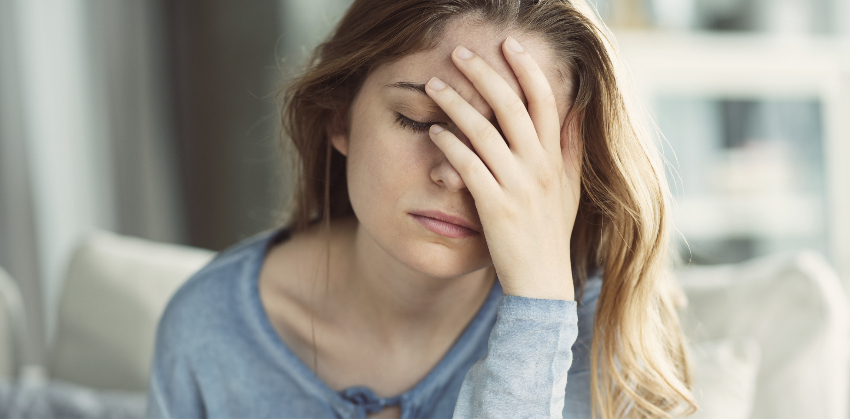
The door of Ch’an is entered by Wu. When we meditate on Wu we ask “What is Wu?” On entering Wu, we experience emptiness; we are not aware of existence, either ours or the world’s.
E-MAIL: admin@relaxmid.com
Modern life and the hectic way we live leaves us exposed to anxiety or worry every single day, and it happens when we have this always on, always connected lifestyle – one that has plenty of time demands, leaving little time to breathe. Although therapy and medication are good treatments, meditation has become a highly effective, natural way to help manage and relieve anxiety. As the basis of mental health care for the 21st Century, this ancient practice provides a way to inner calm, resilience and balance.
Anxiety is more than fleeting worry; it’s a chronic state of unease that comes with real physical symptoms like a racing heart, restlessness or fatigue. Modern-day anxiety is often exacerbated by:
Meditation helps you with the root cause of anxiety and helps you to regain control over your mind and emotion.

Meditation essentially brings your brain down from fight or flight to the parasympathetic nervous system. Deep breathing, mindfulness, lower heart rate and lower cortisol levels to give a feeling of calm.
One learns to observe our thoughts without judgment by regular meditation. By doing this you are building emotional resilience so that if you get anxious, you are better able to handle it.
Negative, repetitive thought patterns give anxiety so much to thrive in. However, meditation breaks this cycle by cultivating present moment awareness, preventing the mind from spinning into where unproductive worry and anxiety take over the day.
Anxiety worsens sleep. Restful sleep associated with certain types of meditation practices (for example, body scans or guided relaxation) can reduce long term anxiety symptoms.
That experience allows meditation to create a deeper understanding of your triggers and thought patterns. With this awareness comes giving individuals an ability to make conscious decisions against stressors.
Basically this means focusing on the present moment in a judgement free way. As you practice mindfulness, you watch your thoughts and your sensations lose power over your anxiety.
How to Practice: Sit in an easy way, close your eyes and focus your breathing. If your mind goes off, smoothly lead it back to your breath.
Body scans are mentally scanning your body to relax areas that you might be holding tension in. This technique releases physical stress from anxiety.
How to Practice: Lie down or sit comfortably. Bring awareness slowly to each part of the body (starting from the toes) and relax while you do.
In this meditation, we send goodwill and compassion to ourselves and others. It helps counter the self critical thinking that goes along with anxiety.
How to Practice: phrases like “May I be happy, may I be safe, may I be at ease” state silently and then wish those phrases to everyone.
Structured relaxation and visualization exercises by means of audio or video guides are made available through this practice. For beginners who may have difficulty meditating on their own, it’s also great.
With this technique, people say a particular deep state of relaxation mantra in silence. You can see that it can greatly reduce stress or anxiety to some degree.

Go slowly for only five minutes a day. As you get better at the practice, increase the duration gradually.
Once you see it working, it’s all about building a consistent habit that you develop at the same time every day — morning, evening, or even while working.
Headspace, Calm, or Insight Timer apps give you guided meditations on specific topics of anxiety relief.
Space out an area in your home that’s free of clutter and downtime.
If we practise correctly, Meditation becomes a skill which takes time to develop. Perfection isn’t everything; consistency is.
Numerous studies confirm the effectiveness of meditation in reducing anxiety:
Major companies such as Google and Apple are using mindfulness meditation to control workplace anxiety. This has resulted in increased productivity and a much reduced burnout.
Those who do meditation practice report lower test anxiety and better focus. Yet schools, which embed mindfulness programs benefit emotionally from students.
Thousands rely on meditation to calm the storm of anxiety during stressful periods like the COVID-19 pandemic, or significant upheavals in their lives.
In a world so uncertain, meditation provides a constant anchor for the mind. Paying just a few minutes of your time daily can help significantly decrease anxiety, increase emotional resilience, and increase overall quality of life. I believe that whether you’re brand new to meditation or a skilled practitioner, the benefits of this for combatting today’s levels of Modern-day anxiety are clear.
Begin small, continue consistently, and as you travel towards a calmer, more grounded self.
